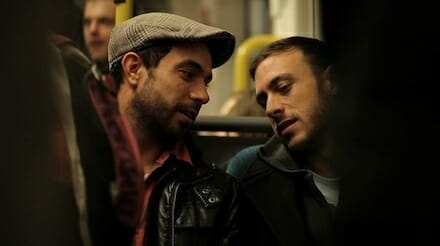Weekend

Weekend is a quiet, well-executed study of a relationship’s first-bloom. But since it’s a tale of boy meets boy instead of boy meets girl (or meets aliens, or really cool weapons, or, best of all, aliens that can turn into really cool weapons!), Andrew Haigh’s film is a gem that’s destined to garner little attention outside of Netflix’s Gay & Lesbian genre section.
The plot is simple. Russell (Tom Cullen) goes out on a Friday, first to a friend’s house and then to a gay bar. He brings Glen (Chris New) home with him. They hook up. The traditional heterosexual viewer experiences relief when nothing very explicit is shown. (That was a close one!) Over the next two days, the two men take the first steps in that orientation-immune dance in which we all participate. Is this something special? And if so, for a moment or a day? For longer?
-

-

-

-

-

-

-

-

-

-

-

-

-

-

-

-

-

-

-

-

-

-

-

-

-

-

-

-

-

-

-

-

-

-

-

-

-

-

-

-








































